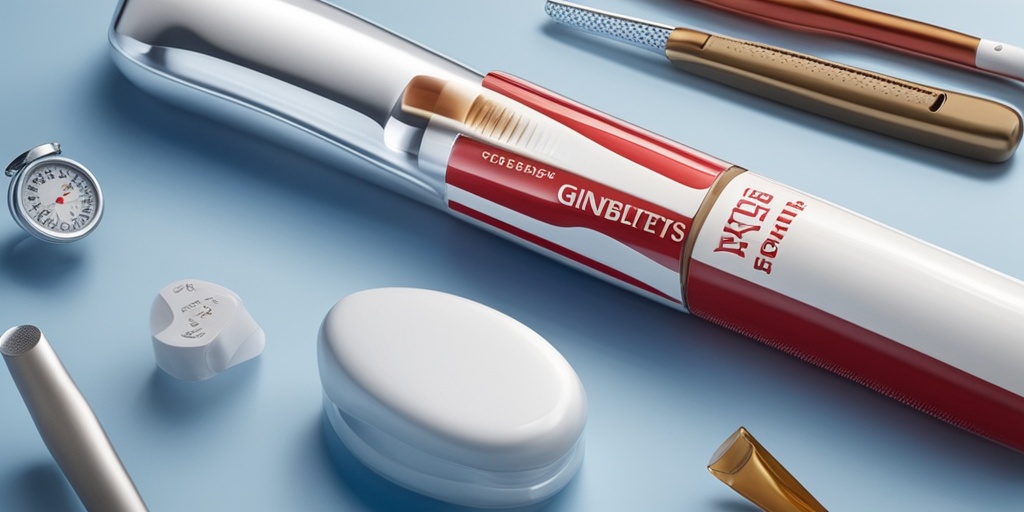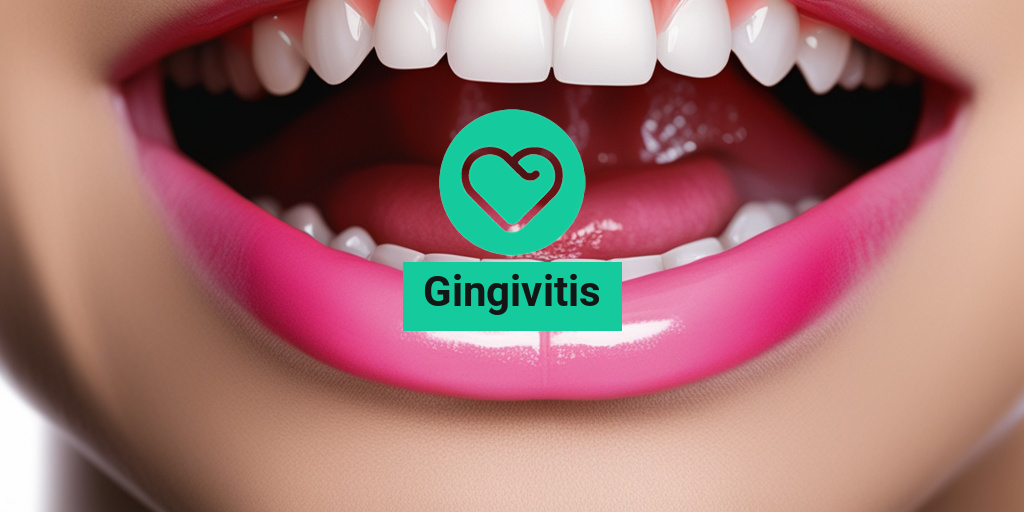“`html
Gingivitis Overview
Gingivitis is a common yet often overlooked dental condition that affects millions of people worldwide. It is characterized by inflammation of the gums, primarily caused by the accumulation of plaque—a sticky film of bacteria that forms on teeth. If left untreated, gingivitis can progress to more severe forms of gum disease, leading to tooth loss and other health complications. Understanding the basics of gingivitis is crucial for maintaining good oral health.
What Causes Gingivitis?
The primary cause of gingivitis is poor oral hygiene, which allows plaque to build up on teeth and harden into tartar. Other factors that can contribute to the development of gingivitis include:
- Smoking or chewing tobacco: These habits can impair gum health and hinder healing.
- Hormonal changes: Events such as puberty, menstruation, and pregnancy can make gums more sensitive.
- Certain medical conditions: Diseases like diabetes can affect blood flow to the gums, making them more susceptible to infection.
- Medications: Some medications can reduce saliva flow, which is essential for oral health.
- Nutritional deficiencies: A lack of essential nutrients, particularly vitamin C, can weaken gum tissue.
Why Is Gingivitis Important to Address?
Ignoring gingivitis can lead to more serious conditions, such as periodontitis, which can result in tooth loss and has been linked to other health issues, including heart disease and diabetes. Early intervention is key to reversing the effects of gingivitis and maintaining overall health.
Gingivitis Symptoms
Recognizing the symptoms of gingivitis is essential for timely treatment. Many people may not realize they have gingivitis until it has progressed. Here are some common symptoms to watch for:
Common Symptoms of Gingivitis
- Red, swollen gums: Healthy gums should be pink and firm. If your gums appear red and swollen, it may be a sign of gingivitis.
- Bleeding gums: If your gums bleed during brushing or flossing, this is a significant indicator of gingivitis.
- Bad breath: Persistent bad breath, or halitosis, can be a result of bacteria buildup in the mouth.
- Receding gums: Gums that pull away from the teeth can expose more of the tooth and lead to sensitivity.
- Changes in gum texture: Gums may feel softer or spongy, indicating inflammation.
When to See a Doctor
If you notice any of these symptoms, it’s important to consult a dental professional. A dentist can provide a thorough examination and recommend appropriate gingivitis treatment options. Early intervention can prevent the progression of gum disease and protect your overall health.
Conclusion
Gingivitis is a manageable condition, but it requires attention and care. By maintaining good oral hygiene practices, such as regular brushing, flossing, and dental check-ups, you can significantly reduce your risk of developing gingivitis. For more information on oral health and effective treatments, consider visiting Yesil Health AI, a valuable resource for evidence-based health answers. Remember, your smile is worth the effort! 😁
“`

“`html
Gingivitis Causes
Gingivitis is a common yet often overlooked dental condition that can lead to more serious oral health issues if left untreated. Understanding the causes of gingivitis is crucial for prevention and effective treatment. Here are the primary factors that contribute to the development of this condition:
Poor Oral Hygiene
The most significant cause of gingivitis is poor oral hygiene. When plaque—a sticky film of bacteria—builds up on your teeth and gums, it can harden into tartar if not removed through regular brushing and flossing. This accumulation irritates the gums, leading to inflammation and the early stages of gingivitis.
Smoking and Tobacco Use
Using tobacco products can significantly increase your risk of developing gingivitis. Smoking not only reduces blood flow to the gums, impairing healing, but it also alters the oral microbiome, making it easier for harmful bacteria to thrive.
Hormonal Changes
Hormonal fluctuations, particularly during puberty, menstruation, pregnancy, and menopause, can make gums more sensitive and susceptible to inflammation. This increased sensitivity can lead to a higher risk of developing gingivitis during these times.
Certain Medical Conditions
Several medical conditions can contribute to the development of gingivitis, including:
- Diabetes: High blood sugar levels can impair the body’s ability to fight infections, making gum disease more likely.
- Autoimmune diseases: Conditions like lupus or rheumatoid arthritis can affect the body’s immune response, increasing the risk of gum inflammation.
- HIV/AIDS: These conditions weaken the immune system, making it harder for the body to combat infections, including those affecting the gums.
Medications
Some medications can cause dry mouth or gum overgrowth, both of which can contribute to gingivitis. Medications such as antihistamines, antidepressants, and certain blood pressure medications can reduce saliva production, which is essential for maintaining oral health.
Nutritional Deficiencies
A diet lacking in essential nutrients, particularly vitamin C, can lead to gum problems. Vitamin C is crucial for maintaining healthy gums, and a deficiency can result in increased inflammation and susceptibility to gingivitis.
Gingivitis Risk Factors
While anyone can develop gingivitis, certain risk factors can increase your likelihood of experiencing this condition. Being aware of these factors can help you take proactive steps to protect your oral health:
Age
As we age, the risk of developing gingivitis increases. Older adults may have a higher prevalence of gum disease due to cumulative effects of poor oral hygiene over the years and the natural aging process of the gums.
Genetics
Your genetic makeup can play a role in your susceptibility to gum disease. If you have a family history of gingivitis or other periodontal diseases, you may be at a higher risk.
Stress
Chronic stress can negatively impact your immune system, making it harder for your body to fight off infections, including those affecting the gums. Stress can also lead to neglecting oral hygiene practices, further increasing the risk of gingivitis.
Uncontrolled Diabetes
Individuals with uncontrolled diabetes are at a significantly higher risk for developing gingivitis. High blood sugar levels can lead to increased sugar in saliva, promoting bacterial growth and inflammation in the gums.
Poor Nutrition
A diet high in sugars and low in essential nutrients can contribute to the development of gingivitis. Consuming a balanced diet rich in vitamins and minerals is vital for maintaining healthy gums.
Other Lifestyle Factors
Other lifestyle choices, such as excessive alcohol consumption and lack of regular dental check-ups, can also increase your risk of gingivitis. Regular visits to the dentist can help catch early signs of gum disease before they progress.
By understanding the causes and risk factors of gingivitis, you can take proactive steps to maintain your oral health and prevent this common condition. Regular dental check-ups, good oral hygiene practices, and a balanced diet are essential for keeping your gums healthy! 🦷✨
“`

“`html
Gingivitis Diagnosis
Gingivitis is a common yet often overlooked dental condition that can lead to more serious oral health issues if left untreated. Understanding how gingivitis is diagnosed is crucial for effective management and treatment. Here’s what you need to know about the diagnosis of gingivitis.
Recognizing the Symptoms
The first step in diagnosing gingivitis is recognizing its symptoms. Common signs include:
- Red, swollen gums: Healthy gums should be pink and firm. If your gums appear red and swollen, it may indicate inflammation.
- Bleeding gums: If your gums bleed during brushing or flossing, this is a significant warning sign of gingivitis.
- Bad breath: Persistent bad breath, or halitosis, can be a symptom of gum disease.
- Receding gums: If your gums are pulling away from your teeth, this could be a sign of gingivitis.
Professional Examination
If you suspect you have gingivitis, it’s essential to consult a dental professional. During your visit, the dentist will perform a thorough examination, which may include:
- Visual inspection: The dentist will look for signs of inflammation, bleeding, and plaque buildup.
- Periodontal probing: This involves using a small instrument to measure the depth of the pockets between your gums and teeth. Deeper pockets can indicate more severe gum disease.
- X-rays: In some cases, X-rays may be necessary to assess the health of the bone supporting your teeth.
Understanding Risk Factors
Several factors can increase your risk of developing gingivitis, including:
- Poor oral hygiene: Inadequate brushing and flossing can lead to plaque buildup.
- Tobacco use: Smoking or chewing tobacco can impair gum health.
- Hormonal changes: Changes during puberty, menstruation, or pregnancy can make gums more sensitive.
- Medical conditions: Certain diseases, such as diabetes, can affect gum health.
By understanding the symptoms and undergoing a professional examination, you can effectively diagnose gingivitis and take the necessary steps toward treatment. 🦷
Gingivitis Treatment Options
Once diagnosed, treating gingivitis is essential to prevent it from progressing to more severe forms of gum disease. Fortunately, there are several effective treatment options available.
Improving Oral Hygiene
The cornerstone of gingivitis treatment is improving your oral hygiene routine. Here are some key practices:
- Brushing: Brush your teeth at least twice a day with fluoride toothpaste. Make sure to use a soft-bristled toothbrush to avoid irritating your gums.
- Flossing: Daily flossing helps remove plaque and food particles from between your teeth and under the gumline.
- Mouthwash: Using an antibacterial mouthwash can help reduce plaque and gingivitis symptoms. Look for mouthwashes specifically designed for gum health. 🌿
Professional Dental Cleanings
Regular visits to your dentist for professional cleanings are crucial in managing gingivitis. During these appointments, your dentist or dental hygienist will:
- Remove plaque and tartar: Even with good oral hygiene, plaque can harden into tartar, which requires professional removal.
- Polish your teeth: This helps to smooth the surfaces of your teeth, making it harder for plaque to accumulate.
Medications and Treatments
In some cases, your dentist may recommend additional treatments, such as:
- Antibiotics: If your gingivitis is severe, your dentist may prescribe antibiotics to help control the infection.
- Chlorhexidine mouthwash: This prescription mouthwash can help reduce bacteria in your mouth and promote healing.
Home Remedies
In addition to professional treatments, several home remedies can support your oral health:
- Saltwater rinse: Rinsing with warm saltwater can help reduce inflammation and promote healing.
- Tea tree oil: This natural antiseptic can be added to your oral care routine, but it should be used cautiously and diluted properly.
By implementing these treatment options, you can effectively manage gingivitis and maintain healthy gums. Remember, early intervention is key! 🦷✨
“`

“`html
Gingivitis Home Remedies
Gingivitis is a common yet often overlooked condition that affects the gums, leading to inflammation and discomfort. Fortunately, there are several effective home remedies that can help alleviate symptoms and promote gum health. Here are some tried-and-true methods to consider:
1. Salt Water Rinse
A simple salt water rinse can work wonders for your gums. Salt has natural antibacterial properties that can help reduce inflammation and kill bacteria. To make a salt water rinse:
- Dissolve 1 teaspoon of salt in 8 ounces of warm water.
- Swish the solution around your mouth for about 30 seconds before spitting it out.
- Repeat this process 2-3 times a day for best results.
2. Baking Soda Paste
Baking soda is another effective remedy due to its ability to neutralize acids and reduce plaque buildup. To create a baking soda paste:
- Mix 1 tablespoon of baking soda with enough water to form a paste.
- Apply the paste to your toothbrush and gently brush your gums.
- Rinse thoroughly with water afterward.
3. Aloe Vera Gel
Aloe vera is renowned for its soothing properties and can help reduce inflammation in the gums. You can use pure aloe vera gel directly on your gums:
- Apply a small amount of aloe vera gel to your gums.
- Leave it on for about 10 minutes before rinsing your mouth with water.
4. Essential Oils
Essential oils like tea tree oil and peppermint oil have antibacterial properties that can help combat gingivitis. Here’s how to use them:
- Add a few drops of tea tree oil or peppermint oil to a glass of water.
- Use this mixture as a mouthwash, swishing it around for 30 seconds before spitting it out.
5. Green Tea
Drinking green tea can also be beneficial for gum health. It contains antioxidants that help reduce inflammation and fight bacteria. Aim to drink 1-2 cups of green tea daily for optimal benefits.
Gingivitis Prevention Tips
Preventing gingivitis is crucial for maintaining healthy gums and overall oral health. Here are some effective tips to help you keep gingivitis at bay:
1. Maintain Good Oral Hygiene
Brushing your teeth at least twice a day and flossing daily are essential practices for preventing gingivitis. Make sure to:
- Use a soft-bristled toothbrush and fluoride toothpaste.
- Brush for at least two minutes each time.
- Floss gently to remove plaque and food particles between teeth.
2. Regular Dental Check-ups
Visiting your dentist for regular check-ups and cleanings is vital. Aim for a dental visit every 6 months to catch any potential issues early and keep your gums healthy.
3. Healthy Diet
A balanced diet rich in vitamins and minerals can strengthen your immune system and promote gum health. Focus on:
- Fruits and vegetables, especially those high in vitamin C, like oranges and strawberries.
- Whole grains and lean proteins.
- Limiting sugary snacks and beverages that can contribute to plaque buildup.
4. Quit Smoking
If you smoke, quitting can significantly improve your gum health. Smoking weakens your immune system and makes it harder for your body to fight off infections, including gingivitis.
5. Stay Hydrated
Drinking plenty of water helps wash away food particles and bacteria in your mouth. Aim for at least 8 glasses of water a day to keep your mouth hydrated and healthy.
By incorporating these home remedies and prevention tips into your routine, you can effectively manage and prevent gingivitis, ensuring your gums remain healthy and free from inflammation. Remember, a proactive approach to oral health is key! 🦷✨
“`

“`html
Frequently Asked Questions about Gingivitis
What is gingivitis?
Gingivitis is a common and mild form of gum disease that causes irritation, redness, and swelling of the gingiva, the part of your gum around the base of your teeth. It is often caused by poor oral hygiene that encourages plaque to form on teeth, leading to inflammation of the surrounding gum tissue.
What are the symptoms of gingivitis?
Common gingivitis symptoms include:
- Red, swollen gums
- Gums that bleed easily when brushing or flossing
- Bad breath
- Receding gums
- Changes in the way your teeth fit together when you bite
How can I treat gingivitis at home?
To effectively manage gingivitis treatment at home, consider the following:
- Brush your teeth at least twice a day with fluoride toothpaste.
- Floss daily to remove plaque between teeth.
- Use an antibacterial mouthwash to help reduce plaque.
- Maintain a balanced diet and limit sugary snacks.
- Visit your dentist regularly for professional cleanings.
Is mouthwash effective for gingivitis?
Yes, using a gingivitis mouthwash can be effective in reducing plaque and gingivitis symptoms. Look for mouthwashes that contain chlorhexidine or other antibacterial agents to help combat gum disease.
Can gingivitis occur in pets?
Yes, gingivitis in cats and gingivitis in dogs is a common issue. Pets can develop gum disease due to plaque buildup, and it is important to maintain their oral hygiene through regular dental check-ups and cleanings.
What should I do if I suspect I have gingivitis?
If you suspect you have gingivitis, it is important to consult a gingivitis doctor or a dentist. They can provide a proper diagnosis and recommend appropriate treatment options.
Can toothpaste help with gingivitis?
Using a gingivitis toothpaste that contains fluoride and antibacterial properties can help reduce plaque buildup and improve gum health. Look for products specifically designed for gum care.
Is gingivitis reversible?
Yes, gingivitis is often reversible with proper dental care and hygiene practices. Early intervention can prevent the progression to more severe gum disease.
How can I prevent gingivitis?
To prevent gingivitis, follow these tips:
- Brush your teeth twice daily.
- Floss daily to remove plaque.
- Use mouthwash regularly.
- Maintain a healthy diet.
- Schedule regular dental check-ups.
When should I see a dentist for gingivitis?
If you experience persistent symptoms of gingivitis, such as bleeding gums or bad breath, it is advisable to see a dentist. Early treatment can help prevent more serious dental issues.
“`




